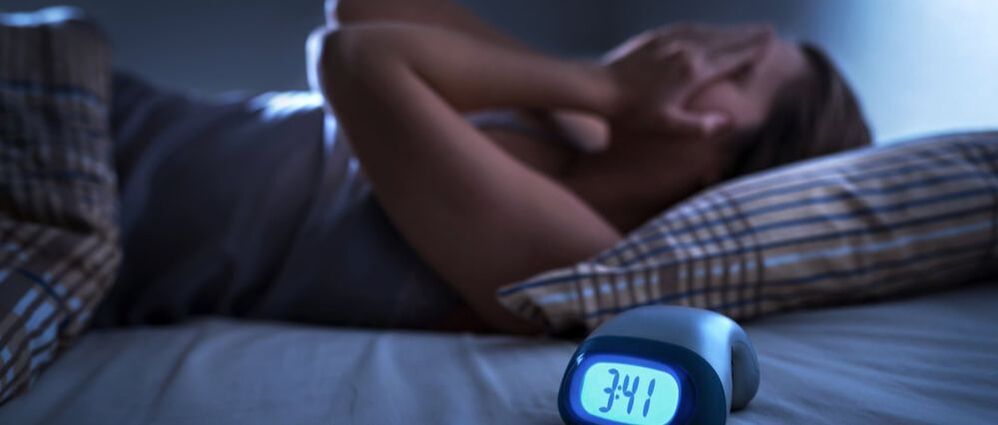Insomnia - Acupuncture and Chinese Medicine Can Help!
Acupuncture and Chinese medicine have been shown to be effective treatments for insomnia, and many people in Kelowna turn to these therapies to improve their sleep quality. Insomnia is a common sleep disorder that can have a range of causes, including stress, anxiety, and hormonal imbalances. Acupuncture and Chinese medicine can help address these underlying causes and promote restful, restorative sleep.
An acupuncturist at Balance Point in Kelowna may use a variety of techniques to treat insomnia, including acupuncture, herbal remedies, dietary changes, and lifestyle modifications. Acupuncture involves the insertion of fine needles into specific points on the body, which can help regulate the body's natural rhythms and promote relaxation. Chinese herbal medicine may be used to address imbalances in the body's energy or Qi, which can contribute to insomnia.
One way that acupuncture and Chinese medicine can help treat insomnia is by reducing stress and anxiety. Stress can cause the body to produce cortisol, a hormone that can interfere with sleep. Acupuncture has been shown to reduce cortisol levels and promote relaxation, which can improve sleep quality. Chinese herbal medicine may also be used to address anxiety and promote a sense of calm.
Acupuncture and Chinese medicine may also help address underlying physical imbalances that can contribute to insomnia. For example, an acupuncturist may identify and treat imbalances in the liver or kidney meridians, which can affect sleep quality. Dietary changes and lifestyle modifications, such as practicing relaxation techniques or improving sleep hygiene, may also be recommended.
Overall, acupuncture and Chinese medicine offer a holistic approach to treating insomnia in Kelowna. By addressing the underlying causes of insomnia and promoting relaxation and balance, these therapies can help improve sleep quality and overall well-being. If you are struggling with insomnia, consider consulting with an acupuncturist at Balance Point in Kelowna to learn more about how these therapies can help you.
An acupuncturist at Balance Point in Kelowna may use a variety of techniques to treat insomnia, including acupuncture, herbal remedies, dietary changes, and lifestyle modifications. Acupuncture involves the insertion of fine needles into specific points on the body, which can help regulate the body's natural rhythms and promote relaxation. Chinese herbal medicine may be used to address imbalances in the body's energy or Qi, which can contribute to insomnia.
One way that acupuncture and Chinese medicine can help treat insomnia is by reducing stress and anxiety. Stress can cause the body to produce cortisol, a hormone that can interfere with sleep. Acupuncture has been shown to reduce cortisol levels and promote relaxation, which can improve sleep quality. Chinese herbal medicine may also be used to address anxiety and promote a sense of calm.
Acupuncture and Chinese medicine may also help address underlying physical imbalances that can contribute to insomnia. For example, an acupuncturist may identify and treat imbalances in the liver or kidney meridians, which can affect sleep quality. Dietary changes and lifestyle modifications, such as practicing relaxation techniques or improving sleep hygiene, may also be recommended.
Overall, acupuncture and Chinese medicine offer a holistic approach to treating insomnia in Kelowna. By addressing the underlying causes of insomnia and promoting relaxation and balance, these therapies can help improve sleep quality and overall well-being. If you are struggling with insomnia, consider consulting with an acupuncturist at Balance Point in Kelowna to learn more about how these therapies can help you.
Acupuncture Can Help You Get the Rest You Need

Here are some research studies related to the use of acupuncture and Chinese medicine for the treatment of insomnia at Balance Point in Kelowna:
- A randomized controlled trial published in the Journal of Acupuncture and Meridian Studies found that acupuncture was effective in reducing insomnia symptoms in postmenopausal women.
- A systematic review and meta-analysis published in the Journal of Alternative and Complementary Medicine found that acupuncture was effective in improving sleep quality and reducing insomnia symptoms in adults.
- A randomized controlled trial published in the Journal of Clinical Sleep Medicine found that acupuncture was effective in improving sleep quality and reducing insomnia symptoms in patients with mild to moderate obstructive sleep apnea.
- A randomized controlled trial published in the Journal of Sleep Research found that acupuncture was effective in improving sleep quality and reducing insomnia symptoms in patients with chronic insomnia.
- A meta-analysis published in the Journal of Psychiatric Research found that acupuncture was effective in improving sleep quality and reducing insomnia symptoms in patients with depression.

